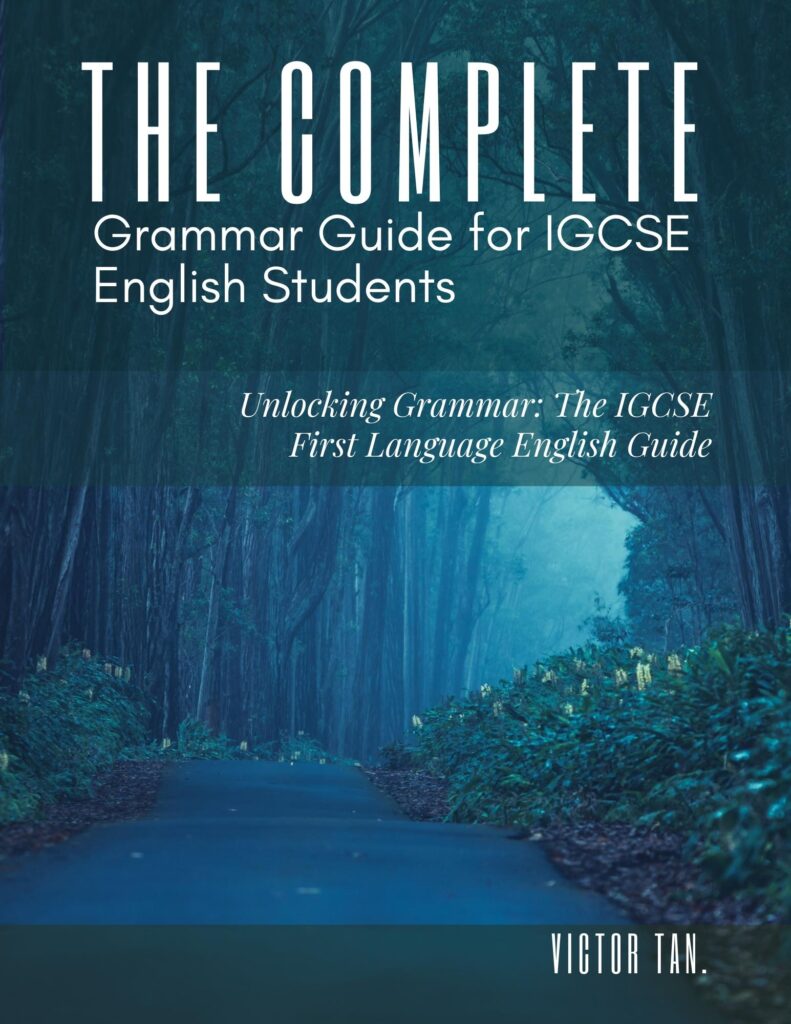Happy, happy new year, everyone! I can’t believe that it was just a couple of days ago that we were all doing our preparations for the end of the year, going on holidays, and just celebrating Christmas.
But now, it looks like we’re right into the thrust of brand new year, and the school year is starting for many of you out there, and I wish you the very best for that.
As we come into a new year, I hope that many more of you are going to see the importance of the English language (and not just IGCSE First Language English!) in your everyday lives, and not only just become better at using it on a day-to-day basis, or understanding the nuances that make it such a beautiful and incredible language, but I also hope that somehow or another that you’re going to find joy in being able to make use of the skills that you learn in the upcoming year of 2024 to understand the world better.
2024 was a year of profound challenge for many of us out there. People faced war, struggle, and strife.
Even as we took part in our studies, faced with the luxury of being able to simply learn unabated and unstopped by anything out there, there was a great privilege on our parts to be able to obtain knowledge, and obtain knowledge you did through this website and through the various resources that were available here.
Thank you for doing that, and thank you for investing in yourselves.
Meanwhile in these early days of the year, I’d like to advise you all to take a moment of time and think about the English language outside of your exam performance, and to see it as something that is capable of bringing you more than just that scholarship and more than just that university admission, because those are all extrinsic motivations, goals that come from outside of ourselves, and things that, at the end of the day, are outside of the English language.
Now, of course I know that a lot of you out there, you have your own reasons for wanting to excel in this exam. You don’t know the exam format, you just want to get that A star or various other things out there.
But, amid this new beginning, I encourage you to be more reflective about why you’re doing this, and how you can move from just being motivated by a carrot at the end of a stick, towards looking for all the many reasons that you have out there to become better at the language, because it’s interesting, because it’s going to help you to access dramas, because it’s going to help you to just become a knowledgeable person at the end of the world, as you master the world’s lingua franca and have it right at your fingertips.
In the year ahead, I have no doubt that many of us will continue to face challenges that are of unprecedented scale and scope, but I’m also confident that many of you out there are going to thrive, having taken the first steps to do so by seeking out the knowledge that you need from here – and we hope to provide more to you in the year ahead.
As you thrive, I hope that you will take this message with you into the year, as you consider ways of strategizing and building your strategies outwards towards developing yourself as an effective English language learner.
Go get those A stars if you’re looking for them, and go conquer the world as you see it. If this website was able to be a part of your journey, then I’m tremendously honored, and I wish you the very best for an outstanding 2024.
Have a great one ahead, and I look forward to seeing you soon!





